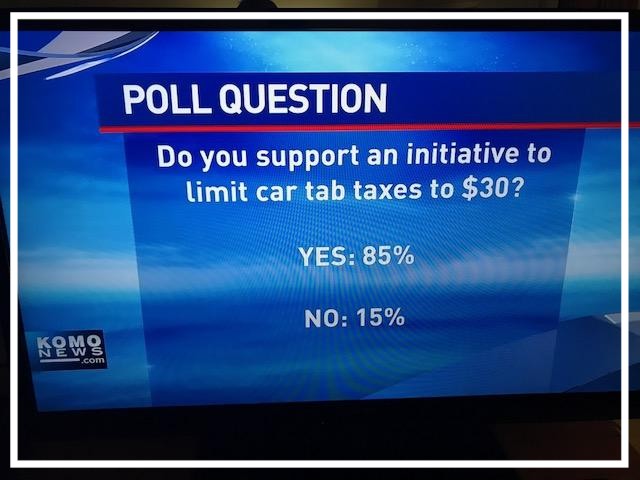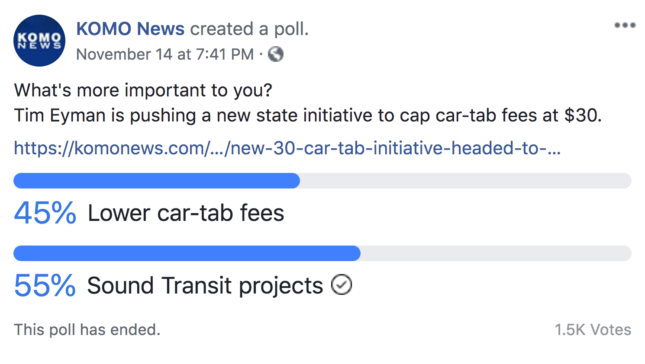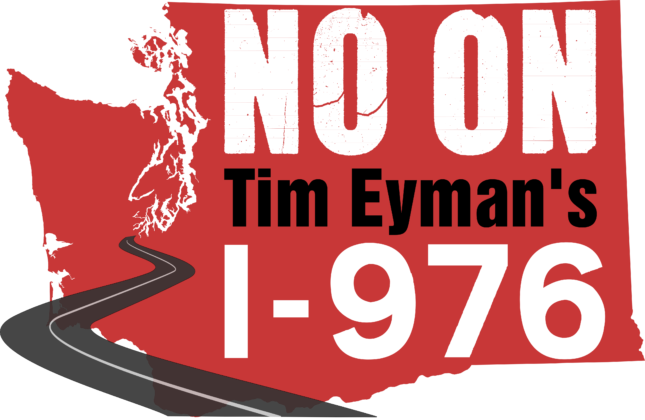January 24th, 2019
Tim Eyman’s tax increase figures don’t belong in anyone’s reporting
Rethinking and ReframingStatements & Advisories
This morning, Tim Eyman sent out an email which claims that the Washington State Legislature has “recently imposed $24 billion in higher taxes”.
Don’t be fooled: These and other figures Eyman included in his email are misleading numbers that do not belong in anyone’s reporting.
The statistics Eyman sent are derived from the ten year projections that a Tim Eyman written law requires the Office of Financial Management to produce.
When Eyman says the numbers came from OFM, what he’s not telling you is that OFM only publishes these ten year revenue projections because they’re required to by self-serving language that Tim Eyman repeatedly put in his initiatives.
Here’s the provision that requires them (RCW 43.135.031):
For any bill introduced in either the house of representatives or the senate that raises taxes as defined by RCW 43.135.034 or increases fees, the office of financial management must expeditiously determine its cost to the taxpayers in its first ten years of imposition, must promptly and without delay report the results of its analysis by public press release via email to each member of the house of representatives, each member of the senate, the news media, and the public, and must post and maintain these releases on its web site. Any ten-year cost projection must include a year-by-year breakdown. For any bill containing more than one revenue source, a ten-year cost projection for each revenue source will be included along with the bill’s total ten-year cost projection. The press release shall include the names of the legislators, and their contact information, who are sponsors and cosponsors of the bill so they can provide information to, and answer questions from, the public.
And here is the page OFM maintains in compliance with that RCW.
According to OFM, there were three hundred and eight bills passed in the 2018 session. Just seventeen were classified as tax or fee bills. See OFM’s session summary page.
Eyman simply loves ten year projections because they have lots of zeroes in them. They’re big numbers. Take Eyman’s number for 2018… $13,384,000. That is the amount of revenue that Senate Bill 6269 (see text) was projected to generate over a ten year time period. In 2018, the amount of revenue generated was only $280,000. For 2019, the oil spill response tax authorized by Senate Bill 6269 is forecast to generate $1.37 million.
Anyone can play the game Eyman is playing here. It’s easy. Any amount sounds more impressive when you take it out over ten years.
For example, how much money will you make in the next ten years? Probably a lot more than you’ll make this year or the next two years. How much will your retirement account grow over the next ten years? Probably a lot more than the next one or two years (unless something really bad happens to the markets over the long term).
Budgets, however, are written for one or two years as opposed to ten years. Taxes are collected at the time of sale, or monthly, or quarterly, or annually, or bi-annually… not in ten year increments. Attempting to look ahead ten years (or further) can be useful as a planning or thought exercise, but that is not what Eyman is doing here. Instead, he is trying to deceive the public and press with misleading statistics.
Eyman has no interest in sound governance or long range planning. His objective has always been to wreck government so it can’t work the way it’s supposed to. He is a destroyer, not a builder.
There has never been a Tim Eyman initiative to address homelessness, clean up Puget Sound, spur economic development development in rural communities, or anything else worth doing to improve our state… and there probably never will be, because Tim Eyman is just not interested in strengthening our communities.
Eyman ascribes to the philosophy of Grover Norquist, who told NPR in 2001: “I don’t want to abolish government. I simply want to reduce it to the size where I can drag it into the bathroom and drown it in the bathtub.”
From Tim Eyman’s email this morning:
In early 2013, the state supreme court reversed 20 years of judicial precedent and overturned the voters repeated decision to require the Legislature to pass another tax increase with a 2/3 vote.
What’s happened since then?
- In 2013, they did 5 tax increases costing us $ 877,500,000.
- In 2014, they did 2 tax increases costing us $ 26,201,000.
- In 2015, they did 4 tax increases costing us $ 5,173,000,000.
- In 2016, they did 2 tax increases costing us $ 2,000,000.
- In 2017, they did 3 tax increases costing us $17,600,000,000.
- In 2018, they did 1 tax increase costing us $ 13,384,000.
So WITHOUT the 2/3 rule, those 6 legislative sessions cost the taxpayers $23.692 billion (as calculated by OFM, the state’s budget office).
One final note: the State Supreme Court did not break with precedent when it struck down Eyman’s two-thirds scheme for revenue in 2013. Quite the opposite… the Court’s decision was entirely in keeping with its prior rulings, like the Gerberding decision. The Washington State Constitution is clear: bills pass the House and Senate by majority vote. Majority means greater than fifty percent: no more, and no less.
A supermajority is not a majority, just as a submajority is not a majority, because in either case, the outcome is in the hands of a few as opposed to the many.
Our Founders understood this, and that’s why they created Article II, Section 22.




